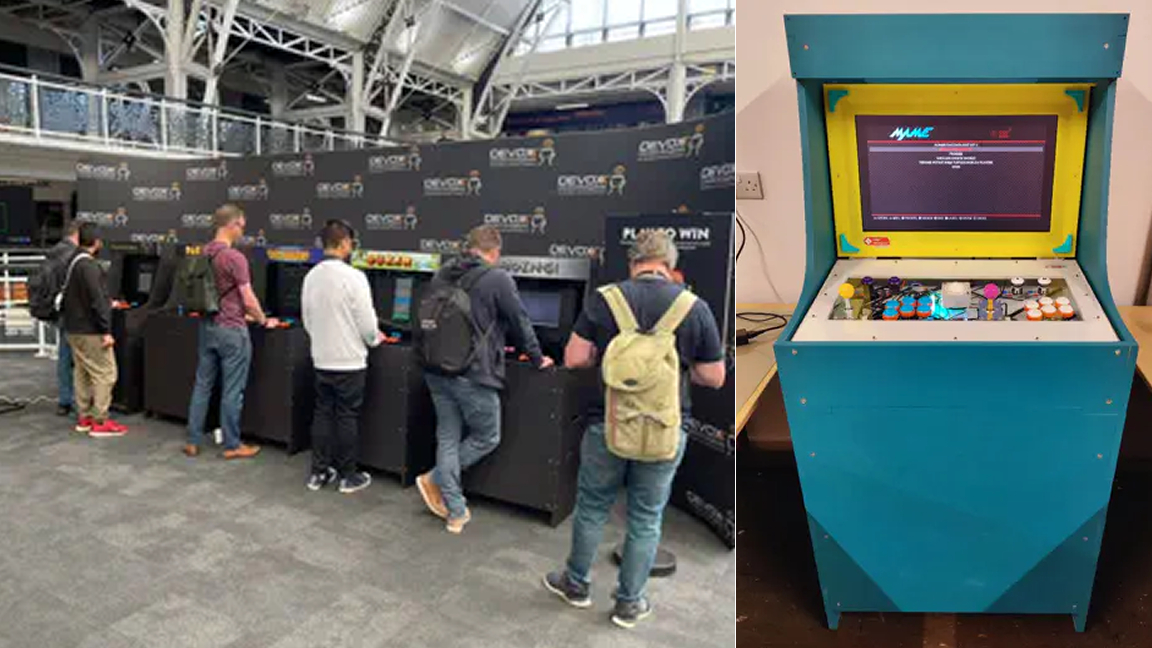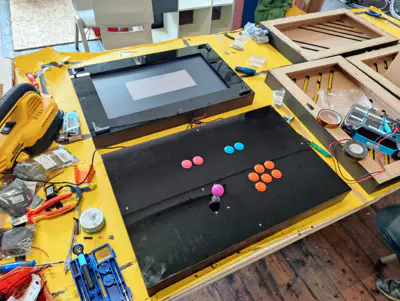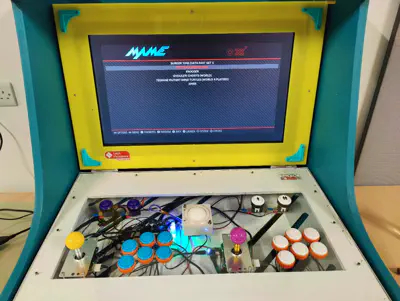
When it comes to building a custom retro gaming rig, we're quick to recommend the Raspberry Pi. The community offers tons of support online via forums, emulation platforms, and endless gaming projects to inspire makers worldwide. That's why it is no surprise that maker and developer Kian Ryan is using a Raspberry Pi to power a series of custom gaming arcade cabinets he put together for one of his clients.
According to Ryan, the clients had a few specific requirements. They wanted an arcade platform they could use to create games with their sponsors that people could play at various events. Preferably, the team wanted something small. Ryan is no stranger to Pi projects, having developed inspiring and noteworthy creations like the Psion 5MX Sidecar.
Like any other Pi enthusiast, his first thought was of Pimoroni's Picade cabinet. However, this unit isn't easily packed or transported. The client wanted something much larger anyway, so the project quickly shifted to making full-size transportable arcade cabinets. The end result is a Pi-powered laptop case that slides into custom cabinet shells that can easily be disassembled, stacked and moved to different locations.


According to Ryan, the cabinet housing is constructed of MDF boards with prototypes cut out using a Shapeoko XXL CNC router. The electronics housing fits a Raspberry Pi 4 and a Cooler Master GA241 to keep things cool. A monitor is used for the display and splits off a 12V/4A power supply for the Raspberry Pi.
The cabinets were designed from scratch by Ryan just for this project using Fusion 360. The Raspberry Pis are running Retro Arch but you could use something like Emulation Station if you wanted to use other emulation systems alongside it. The client has a few games put together using PyGame which were tested and set up to work on the arcade cabinets by Dan Hardiker.
So far, the fleet of arcade cabinets has been featured at Electromagnetic Field, and plans are in the works to bring it to the International Discworld Convention later this year. If you want to get a closer look at this Raspberry Pi project, you can check it out at Leigh Hackspace.







